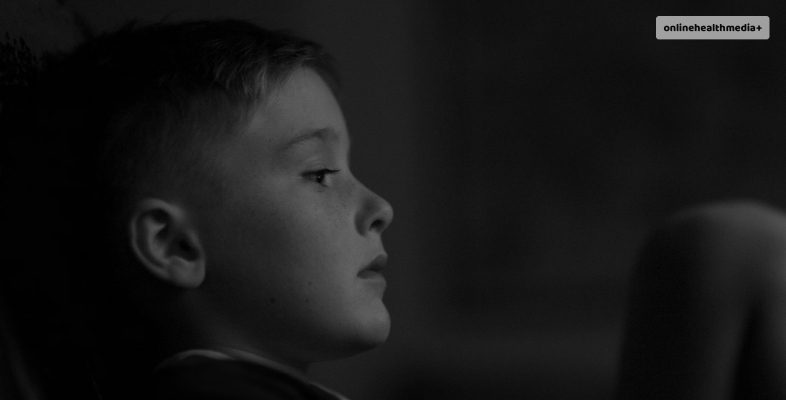This Is Why Your Child Could Be An Empath – How To Treat The Situation
Empath: The magic of your child feeling what other people are feeling will always be a miracle. It is a gift for them and you because they will be the kindest soul.
However, having a child as an empath is also quite the life for you.
After all, coping with feeling so much can be overwhelming. This especially can take a toll on their mental health. Especially when they finally learn that they cannot help everyone!
But is your child an empath?
What does being an empath actually mean?
In this excerpt below, we will be answering all these questions and a guide to handling your empath child in a few situations.
What Does Being An Empath Mean?

An empath is like a little sponge for emotions. If someone is happy, then they experience the joy. If someone is sad, they may feel down themselves. It’s like emotions are airborne but in a sort of sticky-coated way.
These kids won’t stop at just one act of kindness. It’s like they had a little superhero cape on, ever ready to help and cheer others up.
They might just know by themselves without anybody saying a word. Either call it a hunch or intuition–empathic kids are little mind-readers, easily picking up vibes.
These things are indeed a superpower if you look at them in a different way.
Symptoms Your Child Is An Empath

At that age, almost every child is feeling deeply. Cognitive skills like thinking and perception are building and thus can be called simply being a child.
However, how do you know that your child isn’t simply growing but actually an empath?
1. Heart of Gold: If your child’s heart goes all the way in, not only feeling their own joy or sadness but taking on that of others too, then they may be an empath.
2. Nature Buddy: Such kids are quite empathetic and often have a special connection with nature–they can sense what those trees and furry friends down the street feel.
3. Emotion Sponge: Is your child like a sponge that soaks up feelings? If they can just as easily pick up on the happy or grumpy vibes of people around them, then that’s empathy.
4. Gut Feelings Expert: Kiddos with hearts know things without being told a word. It’s magic or the best groove going–they read your mind.
5. Feelings Exhaustion: Following hectic or intense adventures, your child may need quiet time to recuperate. Sometimes empathy is like a superpower, and I am in need of some rest as well. We commonly know this as empathy fatigue.
6. Kindness Superhero: Many empathetic kids are the ones who can’t help but help others or do sweet things without being asked. They’re tiny little kindness superheroes in action.
7. Me-Time Lover: Just because your child sometimes likes to be alone, it doesn’t make them anti-social–it means that empaths need a space where they can relax and recharge their batteries.
8. Caring Captain: Caring spirit, empathy. Sometimes, your child will become genuinely concerned for friends and relatives or look after strangers in their own peculiar way.
Professional Tests Which Can Help Decide

Suppose these symptoms are still not enough to detect an empath child.
However, if you are in doubt, you can try out these simple professional psychological tests. You can do so yourself or get help from a professional child psychologist for these tests.
Emotion Recognition
Measure the child’s ability to identify and define emotions in himself or herself and others. This could mean, for example, showing them pictures of various facial expressions and getting them to identify the emotions.
Emotion Expression
See how the child describes his own emotions. Looking at their facial expressions, body language, and verbal interaction is one way.
Empathy Stories
Tell the child stories or situations involving conflicts of emotion. Ask them to explain how the characters might be feeling and why.
Perspective-Taking
Perspective taking is when you determine if the child understands situations from various angles. This includes talking about your problems or difficulties and asking how they believe each person involved feels.
Problem-Solving Skills
Likewise, present hypothetical emotional challenges and see how your empath child reacts. It can give us an idea of how they understand and cope with their emotions.
Empathy for Animals
Add animal-related scenarios to evaluate the child’s empathy outside of human relationships. This may also show a greater sensitivity to living things.
Active Listening
In conversations about feelings, evaluate the listening abilities of the child. Many empathetic people are active listeners, showing real concern for others ‘feelings.
Troubles Your Child Will Face In Social Settings

Although it is rather a magical feeling for your child to have somewhat telepathic superpowers, their troubles in a social setting are inevitable. These are some of the common problems they might feel as empath:
1. Hard to Say No: If your child is empathetic, refusing might be hard. Helping them so much that saying no might be considered letting someone down.
2. Carrying Others’ Stress: Think about your child carrying their backpack and everyone else’s emotional baggage. It is a lot to deal with and may add even more weight of their own.
3. Messy Conflict Moments: For empathetic kids, arguments or disagreements are like being kicked in the teeth. They sense all the tension in the air, and a small spat turns into something big and stressful.
4. Peer Pressure Tug-of-War: If your child is sensitive to the vibes of the group, she may be easily influenced by peers. It’s as if they have an extra antenna tuned into what everyone else is thinking.
5. Trouble with Personal Boundaries: Imagine your little one in a bubble. But sometimes, it feels more like a balloon ready to pop. Empathetic kids could end up popping their own emotional bubbles in social whirlwinds.
6. Big Decision Dilemmas: When it’s time to decide, your child may be caught between what they want and what others want. It’s sort of like having two road signs pointing in different directions, and both seem important.
7. Fixing Everything (Atleast Trying To): Some kids feel the creeping urge to be a superhero and fix everyone’s problems. But there are capes that just don’t fit, and when they can’t be fixed by magic, it is rough on them.
8. Group Puzzle Challenges: Understanding social group puzzles might be like helping your kid with homework. The pieces are changing every second, and it’s hard to tell where they go.
9. Feeling the Bully Blues: If someone around their child is having a hard time at the hands of a bully, then your empathetic kid feels it too. This adds an extra stress layer to social play that really isn’t necessary.
How To Help Your Empath Child As A Parent
Yes, you might feel overwhelmed with your empath child’s problems. However, you, as a parent, can always help your little one channel these emotions positively.
Heart-to-Heart Talks
Chit-chat with your little empath. Inquire as to how they fared in various circumstances, and share some of your own. One can say that it’s like making a warm nest for feelings.
Practice Saying No
Teach them that saying no is not bad, it’s like a superhero shield. Help them to understand that it’s not wrong to make boundaries and put yourself before others.
Feelings Backpack Check
Imagine unloading emotional backpacks together. Tell them stories and show it’s all right to take off some emotional baggage. It’s like lightening the load.
Conflict Storytime
Make conflict situations less scary. Tell us your own tales of disputes and settlements. It’s like giving them a social adventure handbook.
Peer Pressure Pep Talks
Arm them with peer pressure pep talks. Tell them that being themselves is the best superpower around. It’s giving them a secret weapon against pressure.
Bubble Boundaries
Teach them to bubble up their own feeling. It can be like having a shield, protecting their feelings while in the thick of social fun.
Decision Dilemma Support
Help them navigate decision dilemmas. Guide them to strike a balance between what they want and what is right. It’s a bit like being their sidekick in the decision-making mission.
Social Puzzle Partners
Solve the social puzzle together. It’s like doing a happy family jigsaw where everyone takes their place. Motivate them to enjoy the process of finding their niche.
Bully Blues Buddy
Be their bully blues buddy. Just be open about bullying and let them know they aren’t alone like being their superhero’s sidekick fighting the bully blues.
Like a personal guide, helping your empathic child means offering support and providing tools that are suited to the journey through this social world. Helping them understand where they so often fit in only ambivalently.
Also read
- Top Electric Toothbrush For Kids.
- The Most Common Types Of Bicycle Accident Injuries.
- Compelling Reasons To Incorporate Shilajit Into Your Diet.



